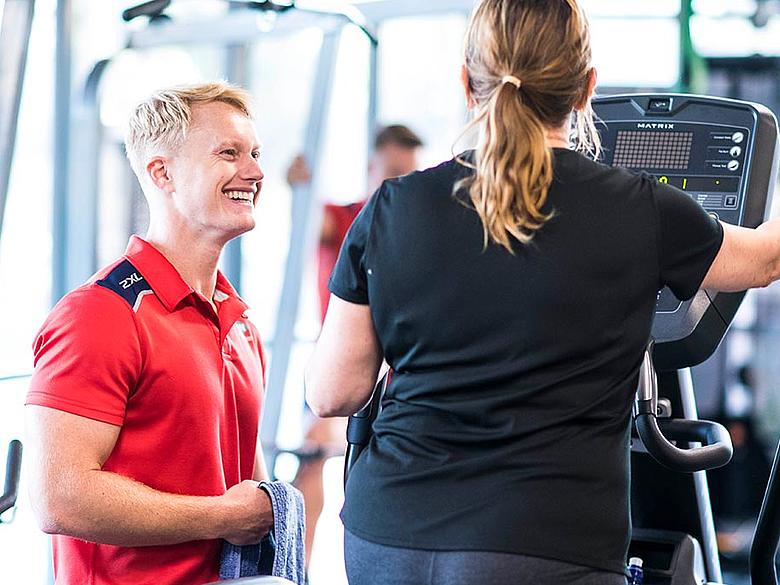When we think of fat we think of the fat stored under the skin that we can squish and feel. This fat is known as subcutaneous fat and is what many of us strive to get rid of in order to improve our overall body composition. It is important to keep in mind this isn’t the only fat we should be trying to reduce and the other type is not as easily noticed. Visceral fat is the fat we cannot see, it is wrapped around our internal organs. Visceral fat increases the risk of several serious health problems such as cardiovascular disease, type 2 diabetes, increased blood pressure, increased cholesterol, cancer, liver disease, fertility issues and the list goes on. Visceral fat also produces chemical’s and hormones that can be toxic to the body.
So how do I know if I have visceral fat? Waist circumference is a good measure of visceral fat but not in all cases. It is common for lean people with a slim waist to unknowingly have high levels of visceral fat. The bioscan conducted every 9 weeks with your trainer will give us a full analysis of your body composition, as well as a clear indication of whether your visceral fat levels are at an unhealthy level. The scan also enables us to track and monitor you every 9 weeks to ensure visceral fat levels are dropping.
Can you decrease levels of visceral fat? The good news is you can do something about it. Visceral fat like subcutaneous fat can be reduced. In most cases losing body fat will lead to drops in visceral fat as a byproduct. Changing your lifestyle to include a healthy diet and exercise regime is the first place to start. It is also important to ensure you are in a caloric deficit, meaning you are expending more energy then you are consuming. Your trainer will be able to ensure you are in an appropriate deficit for your lifestyle and educate you around this. When it comes to nutrition you want to ensure you have a well balance diet including fibre, adequate protein, healthy fats and micronutrient rich foods such as fruit and vegetables. Aim to get in a decent amount of omega-3 fatty acids which can be found in fish, nuts and seeds. Getting 80-90% of your calories in through unprocessed, whole, fresh foods will help ensure you are getting in adequate amounts of micronutrients, vitamins and minerals. It is also essential to ensure you are well hydrated and drinking plenty of water daily.
For those of us who already have a healthy diet and regular exercise routine there are a few other lifestyle changes we can implement to help lower levels of visceral fat.
High cortisol levels have been linked with high levels of visceral fat. Cortisol is known as the stress hormone. Decreasing the amount of stress in your life is easier said then done but it is worth trying to implement strategies such as meditation, deep breathing or other stress management techniques to help lower cortisol levels. Other ways to decrease cortisol levels are:
* Getting at least 7 hours of good quality sleep
* Reducing alcohol intake
* Avoiding smoking
Linking back to nutrition, a nutrient dense diet has been shown to support lowered cortisol levels. Omega 3 fatty acids have been studied and linked to lowering of cortisol levels. It is crucial we consume omega fatty acids as our body cannot make them. Supplementing with a good quality fish oil tablet may be worthwhile to ensure you are getting enough omega’s in your diet. Another beneficial supplement is ashwagandha which is a herb used in traditional medicine to enhance the body’s resilience to stress and reduce anxiety.
When it comes to reducing visceral fat starting with the basics is essential. Creating long lasting, healthy lifestyle changes will make the biggest difference. Reducing visceral fat levels will lead to a healthier, longer life. It is definitely worth chatting with your trainer and a medical professional if you are worried about your visceral fat levels.
Are you our next success story?
Enjoy a two week FREE experience pass, when you book a free consultation today.

